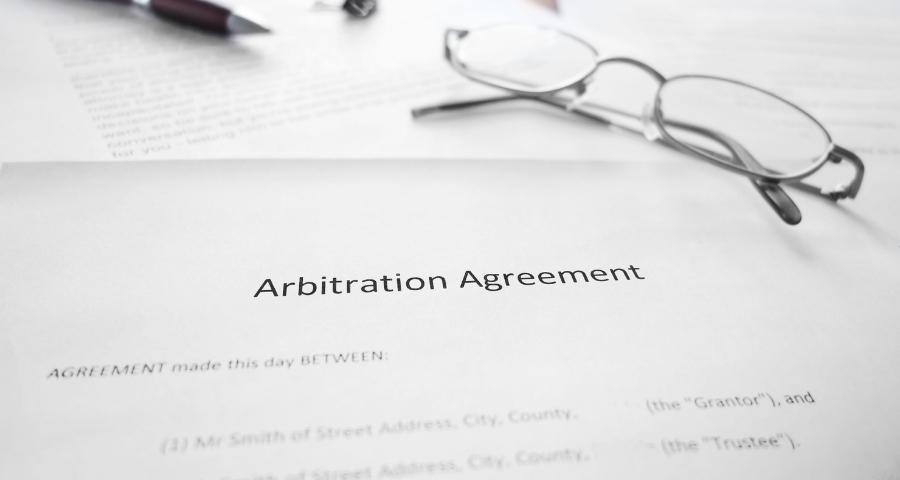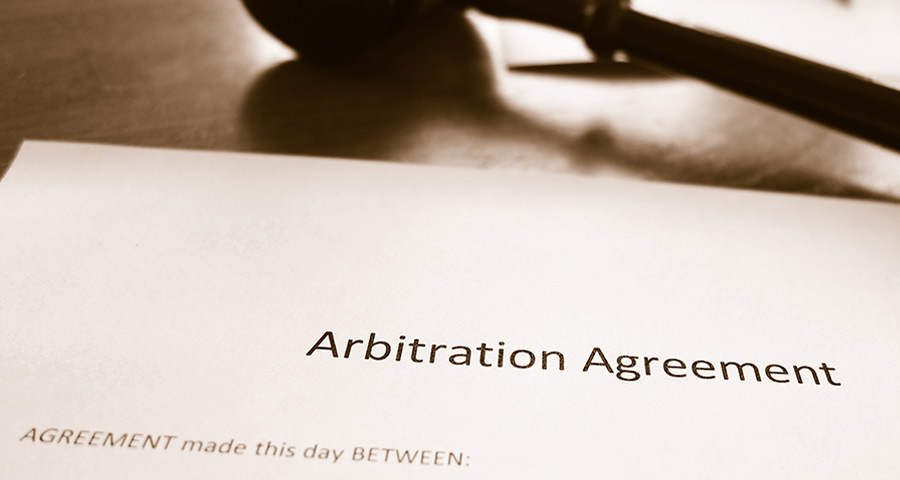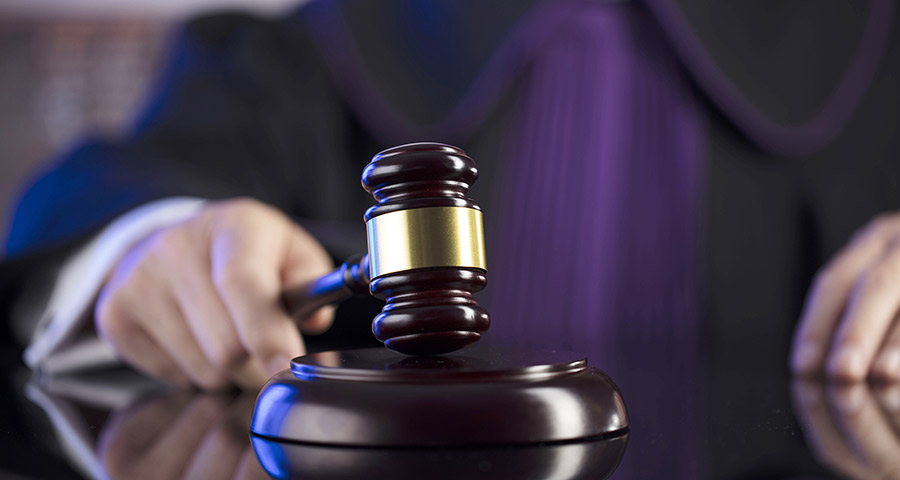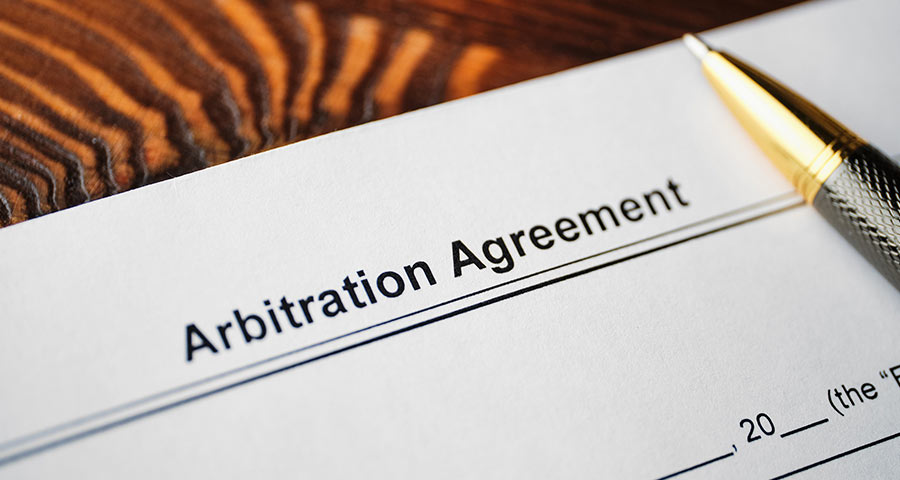
Arbitration has increasingly been used to resolve disputes. Arbitration is more expedient and efficient than court litigation, and also has the added benefits of being private and giving the parties the opportunity to select their decision maker.
This article will address some of the frequently asked questions regarding arbitration.
How much are the arbitration fees?
The fees charged for initiating arbitration can vary depending on the amount of the claim and the ADR provider you choose. Arbitration agreements often specify that a particular ADR provider's rules will govern the arbitration. (e.g., “The parties agree to arbitrate under the Commercial Arbitration Rules of the American Arbitration Association (AAA).”)
The AAA’s Commercial Arbitration Rules Standard Fee for filing a claim of less than $75,000 is $800; for claims between $75,000-$150,000 the fee is $1,375.00. Filing fees increase as the amount of the claim at issue increases. Filing fees also differ depending on the rules that will govern the particular arbitration (e.g., different rules apply to commercial, employment, construction, labor, or international arbitrations).
There are ongoing costs as well to cover the arbitrator’s compensation.
How long does the arbitration process take?
Arbitration is generally faster compared to litigation; however, there are a variety of factors that influence how long the arbitration will take, and no two arbitrations will be exactly the same. Accordingly, the length of the arbitration can vary greatly. The arbitration process will generally move through the following steps:
- Initiation – the demand, statement of claim, and answer
- Arbitrator selection – usually the parties select
- Discovery – the exchange of information between parties
- Hearing – like a trial, the parties present their cases to the arbitrator
- Award – the arbitrator will make and render a decision
Is discovery allowed in arbitration?
In the absence of agreement, there generally is no right to discovery in arbitration proceedings under either state or federal law. [See McRae v. Sup.Ct. (Hale) (1963) 221 CA2d 166, 172, 34 CR 346, 350] However, if the parties agree to arbitrate under certain rules, there may be discovery under those rules.
Parties generally do not have the right to commence discovery until at least the prehearing conference with the arbitrator. Generally, arbitration rules provide for an exchange of documents as a matter of right, but arbitrators may impose limitations on the number of document requests.
Arbitration rules may not expressly address depositions. If they do, they may limit the number allowed, or they may leave the issue to the arbitrators’ discretion.
The arbitrator will manage any necessary exchange of information among the parties with a view to achieving an efficient and economical resolution of the dispute, while at the same time promoting equality of treatment and safeguarding each party’s opportunity to fairly present its claims and defenses
What powers does the arbitrator have?
Arbitrators generally have the authority to order discovery as the arbitrator considers necessary to a full and fair exploration of the issues in dispute, consistent with the expedited nature of arbitration. [Booker v. Robert Half Int'l, Inc. (DC Cir. 2005) 413 F3d 77, 82] All discovery disputes arising out of arbitration must be submitted first to the arbitrator. [Berglund v. Arthroscopic & Laser Surgery Ctr. of San Diego, L.P. (2008) 44 C4th at 528, 535-536]
Arbitrators also have the power to make interim awards and orders where necessary to safeguard the subject matter or effectuate the proceedings, including injunctive relief and measures for the protection or conservation of property and disposition of perishable goods …” [See AAA Commercial Arbitration Rules and Mediation Procedures, Rules R-37 & R-47]
As an alternative to interim awards, arbitrators may issue partial final awards if necessary to provide the parties effective relief consistent with their agreement. [Hightower v. Sup.Ct. (O'Dowd) (2001) 86 CA4th 1415, 1437-1441]
Arbitrators have implicit authority to hear and decide dispositive motions where the governing procedural rules allow for such motions and the responding parties are afforded a fair opportunity to present their cases. [Schlessinger v. Rosenfeld, Meyer & Susman (1995) 40 CA4th 1096, 1105-1109, 47 CR2d 650, 656-658]
Arbitrators may impose sanctions for bad faith actions or dilatory conduct if such awards fall within the scope of the arbitrator's authority as set forth in the arbitration agreement: “Simply put, when parties have agreed in writing to binding arbitration and to confer upon their arbitrator the power to ‘grant any remedy or relief to which a party is entitled under California law,’ we presume they meant what they said and … they will be held to those words.” [David v. Abergel (1996) 46 CA4th 1281, 1283-1284, 54 CR2d 443, 444-445
Arbitrators have power to issue subpoenas for witnesses and for production of documents, records and evidence at the hearing. Such subpoenas are enforceable by the court.
The arbitrator shall determine the admissibility, relevance, and materiality of the evidence offered and may exclude evidence deemed by the arbitrator to be cumulative or irrelevant.” [AAA Commercial Arbitration Rules and Mediation Procedures, Rule R-34(b)]
Arbitrators must provide a “fundamentally fair” hearing; this includes the right “to present relevant and material evidence and argument before the decision makers.” [Bowles Fin'l Group, Inc. v. Stifel, Nicolaus & Co., Inc. (10th Cir. 1994) 22 F3d 1010, 1013]
The arbitrator has discretion to dismiss an arbitration proceeding due to unreasonable delay by the claimant in bringing the matter to a hearing. [Burgess v. Kaiser Found. Hosps. (1993) 16 CA4th 1077, 1081, 20 CR2d 488, 490]
The arbitrator has the power to issue an award, it must be in writing and signed by the arbitrator. An award may include any form of equitable or legal relief a party might recover in a court action. “Arbitration serves as a substitute for proceedings in court.” [Baker v. Sadick (1984) 162 CA3d 618, 628, 208 CR 676, 682]




